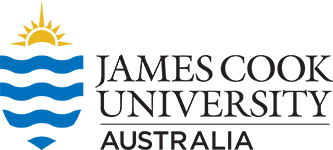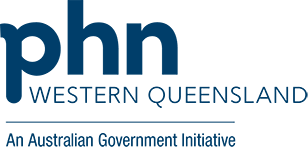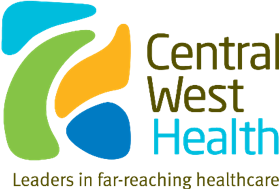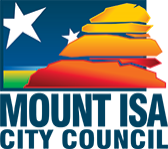Quicklinks
Murtupuni - Gather up, muster up!
"Murtupuni" is the Kalkadoon word for 'coming together', 'muster up' or 'get together'
Murtupuni with your professional networks, expand your knowledge of rural and remote health, and be part of the discussions around delivering quality health care and workforce in the outback.
"Are You Remotely Interested...?" 2020 Virtual Conference
James Cook University, Centre for Rural and Remote Health (CRRH) is proud to announce that the 10th biennial conference in the “Are You Remotely Interested...?” series, will be held virtually from Mount Isa on Wednesday 30th September and Thursday 1st October, 2020. The theme for this conference is building on the past work in realising remote possibilities and promising practices, and what we have learnt so for from pandemic responses. We will also be celebrating WHO's International Year of the Nurse and Midwife, 2020.

ACRRM ID: 21213
Class name: 10th Biennial Are You Remotely Interested Conference - Mount Isa - 30/09/2020 - 01/10/2020
Thank you to all attendees for joining our AYRI 2020 Virtual Conference.
Keynote Speakers

Elizabeth Iro
World Health Organisation Chief Nursing Officer
Before joining WHO, Ms Elizabeth Iro had more than 30 years of experience in public health in the Cook Islands and regionally. As Secretary of Health of the Cook Islands, she implemented health reforms to strengthen the country’s health system. These include developing the country’s National Health Roadmap 2017-2036, the National Health Strategic Plan 2017-2021, and the Health Clinical Workforce Plan. She had previously served as the country’s Chief Nursing Officer and Acting Director of Hospital Health Services. She was responsible for providing a distributed rural nursing and medical program in and for the Cook Islands. For the first 25 years of her career, she was a staff nurse, midwife and charge midwife at hospitals in the Cook Islands and New Zealand.
Nursing and Midwifery Leadership Panel
Professor Roianne West (Session Chair)
CEO, Congress of Aboriginal and Torres Strait Islander Nurses and Midwives
Professor Roianne West is a Kalkadunga and Djaku-nde woman hailing from her grandmother’s ancestral lands near Mount Isa giving her an excellent appreciation of challenges facing our members in rural, remote and regional settings and is the newly appointed CEO of Congress of Aboriginal and Torres Strait Islander Nurses and Midwives.
Her drive to improve Aboriginal and Torres Strait Islander health is part of a long family tradition and includes careers of nursing spanning four generations. Prof. West has a twin sister and a brother who are also Registered Nurses and twin daughters who are studying Nursing and Midwifery.
Prof. West has completed a Bachelor of Nursing with Deakin University, a Masters of Mental Health Nursing, and a PhD with JCU which developed a model of excellence for increasing Indigenous nurses in Australia 2012.
Her depth and breadth of experience in leadership positions in hospitals, policy, VET, and academia over more than 20 years where she began her journey as an Aboriginal health worker in an Aboriginal Community Controlled Health Service means she is well placed to continue to lead the realisation of CATSINaM’s vision for Aboriginal and Torres Strait Islander nurses and midwives play a pivotal and respected role in achieving health equity across Australia’s health system for Aboriginal and Torres Strait Islander Peoples.
Professor West was Australia’s first Nursing Director in a tertiary hospital with a dedicated portfolio of Indigenous Health.
She was also Australia’s first Professor of Indigenous Health in a joint appointment between a state health service and a University school of nursing and midwifery, Foundation Chair in First Peoples Health, Director of the First Peoples Health Unit and the inaugural Dean of First Peoples Health all at Griffith University.
Prof. West is an active researcher and up unit recently has led the Yuwan Gulgan (YG) study of Aboriginal and Torres Strait Islander Health and Cultural Safety Education and Training at Griffith University which aims to improve safety and quality in Aboriginal and Torres Strait Islander Health and Cultural Safety health professional education and training through an Indigenous Research lens. Prof West was recently acknowledged for her outstanding research leadership when announced as the 2020 Lowitja Institute Cranlana.
Prof. West is the only Aboriginal Nurse in the country currently who is a recipient of both the CATSINaM Sally Goold Award and Fellowship.

Dr Lynore Geia
Academic Lead, Indigenous Health, Centre for Nursing and Midwifery Research, James Cook University
I am an Aboriginal and Torres Strait Islander woman from Palm Island, Nth Queensland, home to the Bwgcolman people. My role as a health professional has been interrelated with the Aboriginal and Torres Strait Islander community and professional leadership experiences over the past three decades.This has involved participating in various leadership roles in Aboriginal and Torres Strait Islander health on State, Territory, Federal and International forums.
I have extensive practice in rural and remote health, and am a strong advocate for Aboriginal community controlled health. I am committed to developing effective research and education that impacts on health praxis; in particular working towards better outcomes in Aboriginal and Torres Strait Island health. This has led to a passion for working with community to develop support strategies to strengthen Aboriginal and Torres Strait Islander youth health and families through best practice, and more recently including families and prison research/correctional services with Prof. Andrew Day, Indigenous Education and Reserach Centre.
The passion to work with and for community has extended into the use of social media for public health activism and advocacy such as #IHMayDay (Indigenous Health May Day https://croakey.org/about-ihmayday/ ) an annual 15 hour Twitter event that privileges Indigenous voices in discussing holistic health issues that impact on Indigenous peoples and their communities.

Adjunct Associate Professor Renee Blackman
Renee is a Gubbi Gubbi woman from the Sunshine Coast of Queensland. She is nurse leader and currently CEO of Gidgee Healing, the Aboriginal Community Controlled Health Service that provides services to about 7,000 Aboriginal people living across a vast area of north-west Queensland, from Mount Isa to the Gulf.
This role is the culmination of more than 20 years of experience as a clinician, academic and working in senior management roles in metropolitan and remote areas. Renee became interested in health as a young girl, growing up with grandparents who regularly attended health services because of chronic illnesses. Renee felt comfortable with the world of healthcare, and so was interested when family members who were Aboriginal Health Workers suggested she might also like to consider taking on the role. During her eight years as an Aboriginal Health Worker, Renee came to understand the importance of quality healthcare in preventing the sort of chronic conditions that her family members experienced. She then studied to become a nurse, wanting to extend her clinical practice and knowledge, and worked at Mount Isa Hospital as a nurse for five years and then James Cook University, Mount Isa Centre for Rural and Remote Health.
She was drawn back to primary healthcare because of its potential for prevention and early intervention, working in service planning and management roles at the Institute for Urban Indigenous Health and the Aboriginal & Torres Strait Islander Community Health Service (ATSICHS) Brisbane. In 2018, Renee was delighted to return to Mount Isa and take up her current position. She joined the board of CATSINaM to help represent the needs of Aboriginal communities in north-west Queensland, and also to pursue her interest in developing the cultural safety of services and healthcare professionals. Renee is a graduate and Fellow of Rural Leadership Australia.

Adjunct Associate Professor Isabelle Skinner
Adjunct Professor Dr Isabelle Skinner, is an internationally recognised nurse and midwifery leader, and a recent member of James Cooks University’s Centre for Rural and Remote Health as the Rural and Remote Health Principal Research Lead. She started her nursing career in North West Queensland in Cloncurry and from there developed skills and knowledge to support her work in increasingly more remote areas of Australia in Queensland, NT and the Kimberley region of WA and beyond. She is an experienced leader and innovator in health and higher education with expertise in leading innovation across health systems and high impact research to address complex health and social concerns in the area of rural, remote health and Indigenous health. Dr Skinner holds a PhD from La Trobe University, a Master’s in Public Health and Tropical Medicine from James Cook University, a Graduate Diploma in Professional Communications (multimedia) from the University of Southern Queensland and an Executive MBA from Melbourne Business School. She specialises in digital health and has researched and evaluated telehealth services, designed mHealth (mobile health) and eHealth (electronic health) services.
Recently Dr Skinner has been an academic with progressive leadership roles within the University sector, including Director of Teaching and Learning for Charles Darwin University. She has consulting and board experience, Dr Skinner has run her own research and consultancy business for the last six years, for which she was a finalist in the Telstra Business Woman of the Year for the Northern Territory. Dr Skinner has extensive experience on the Boards of not-for-profit member organisations such as Girl Guides Australia. She is a member of the Australian College of Nurses and is a Fellow of CRANAplus, the Australian national health professional organisation for remote health practitioners and is an Aurora Award recipient for her leadership and advocacy for remote health. Isabelle is passionate about improving access to specialist health care services for people in remote and rural communities around the world. She has worked with health care teams and students in Australia, Sri Lanka, Indonesia, Singapore, Zimbabwe and China. The health promotion Facebook page she is the Editor for has nearly ½ a million followers in 79 countries. She has held leadership roles nationally and was the Chief Executive Officer for the International Council of Nurses (ICN) which is a federation of 133 national nurses associations representing the more than 20 million of nurses worldwide.

Adjunct Professor Shelley Nowlan
Chief Nursing and Midwifery Officer - Queensland Health
Adjunct Professor Shelley Nowlan has provided leadership within Queensland Health in Executive Director of Nursing and Midwifery, Director of Nursing, Chief Operational Officer and acting Chief Executive roles. As the Queensland Chief Nursing and Midwifery Officer, university faculty member and International Council of Nurses (ICN) Global Nursing Policy Leadership Institute Alumni, her advocacy for nursing and midwifery informs policy development at state, national and international levels influencing clinical innovation, strategic planning, research, curricula and workforce commissioning.
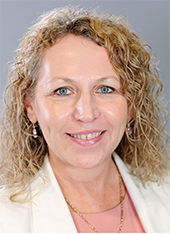
Adjunct Associate Professor Michelle Garner
Executive Director Nursing and Midwifery and Clinical Governance – North West Hospital and Health Service
Adjunct Associate Professor – James Cook University
Endorsed Nurse Practitioner
Michelle’s 28 year career in health has included roles in a large tertiary teaching hospital in Melbourne before relocating to Queensland, for the past 12 years and has worked in advanced practice nursing and as a Nurse Practitioner and Executive Director of Nursing and Midwifery. Michelle is currently the Executive Director Nursing and Midwifery and Clinical Governance (EDNMCG) with the North West Hospital and Health Service.
Michelle is an endorsed nurse practitioner, and has a special interest in the advanced pathways available for Nursing and Midwifery profession, particularly in Rural and Remote. Michelle is an Adjunct Associate Professor with the School of Nursing and Midwifery, James Cook University and is affiliated with the Centre for Rural and Remote Health (CRRH).
Michelle holds appointments as the Deputy Chair of the Queensland Executive Directors of Nursing and Midwifery Forum (EDNM), a member of the Queensland Nursing and Midwifery Implementation Group and .nursing member of the Clinical Senate.

Katie Pennington
Katie Pennington is a Registered Nurse currently working in a continuous quality improvement and health systems role with Puntukurnu Aboriginal Medical Service in the East Pilbara, WA and also as a Registered Nurse at St Helens District Hospital in Tasmania
Her experience in rural, remote and isolated health spans 18 years, from remote Australian and isolated overseas deployments during her time as a medic in the Australian Army, to rural hospitals in beautiful Tasmania and in more recent years working with a number of Government and Community Controlled organisations in the SA and WA central desert regions of Australia. She has also worked with the Wardliparingga Aboriginal Research Unit at SAHMRI and with IHMS in their immigration health services.
Katie holds a Bachelor of Nursing from the University of Tasmania, a Graduate Diploma in Remote Health Practice and a Graduate Certificate in Child and Family Health Nursing from Flinders University. She is currently undertaking her Masters in Public Health (Research) through Edith Cowan University.
Findings from her research project Registered Nurses in very remote Australia: enablers to legal medication management practice and the impact of medicines and poisons legislation on health service delivery, contributed significantly to informing remote and ACCHO sector advocacy in WA that resulted in regulatory changes to better support the work of RNs with medicines in remote areas.

Katherine Ibister
Chief Executive Officer, CRANAplus
Katherine is a Registered Nurse and Midwife with a career spanning over 25 years. She is the Chief Executive Officer, CRANAplus.
Katherine trained as a nurse in the UK and spent her early career working in critical care. During a working holiday around Australia she developed a passion for rural and remote health which shaped her career pathway. After emigrating to Australia, Katherine trained as a Midwife and has held diverse roles across the public and private sector working in general practice, rural hospitals, aeromedical retrieval and most latterly in primary health care centres in rural and remote North Queensland. She has held senior positions with the Royal Flying Doctor Service (Queensland Section), Uniting Care and CRANAplus.
Katherine holds a Bachelor of Nursing (Hons), Post Graduate Diploma Midwifery, Master of Public Health and has additional qualifications in leadership and management. Katherine has a strong desire to promote the role of nursing and midwifery particularly in the remote and isolated sector. She is passionate about the delivery of quality Primary Health Care Services, with a specific focus on Aboriginal and Torres Strait Islander Health and the development of equitable and sustainable health care.

Professor Melanie Birks
Head of Nursing and Midwifery, James Cook University
Melanie Birks is an experienced academic with an extensive track record in research and publication, having authored numerous peer-reviewed journal articles as well as textbooks and book chapters. She has been educating nursing students in regional areas for more than 25 years. Professor Birks currently occupies the position of Professor and Head of Nursing and Midwifery at James Cook University, Townsville. She is passionate about learning and teaching, and believes that quality education can be a life-changing experience. Her research interests are in the areas of educational accessibility and relevance, and preparation of a high quality health workforce.

Professor Jane Mills
Professor Jane Mills is the Dean and Head of the La Trobe Rural Health School. Considered one of Australia and New Zealand’s foremost nurse academics with extensive experience leading and managing teams in both government and tertiary sectors her research portfolio focuses on rural and public health, health workforce, and health system strengthening. With a career vision to contribute to a just society by fostering research and graduates that make a positive difference, Professor Mills believes education and research are powerful vehicles for change.


Associate Professor Emily Flores
Department of Pharmacy Practice, East Tennessee State University
Emily K. Flores grew up in Anderson, SC and loves her Southern roots. She is thankful for her time at Clemson University, the Medical University of South Carolina, the University of Tennessee Medical Center, and the University of Texas at Austin College of Pharmacy which prepared her to join the faculty at ETSU in 2008. She was promoted to Associate Professor in the Department of Pharmacy Practice in 2014. Dr. Flores is Family Medicine trained and global health interested. She thrives on interprofessional practice and collaboration locally and abroad, specifically in rural and underserved areas. Dr. Flores is an Adjunct Faculty member within the ETSU Quillen College of Medicine’s Department of Family Medicine.
Dr. Flores practiced with the ETSU Johnson City Family Medicine Associates for over 8 years where she provided patient care in collaboration with a patient-centered medical home interprofessional team. In late 2017, she transitioned into a Global and Rural Engagement role at the College of Pharmacy and interprofessionally at ETSU. Dr. Flores serves as a teacher, preceptor, and mentor for a variety of professional students and residents and enjoys active, hands-on teaching with a focus on learners gaining competency in skills to improve patient care.
Since 2009, Dr. Flores has enjoyed the privilege of partnering with Global Health Outreach to take pharmacy students on a Global Health rotation annually to various developing countries. In her current role at the College, she is involved in further development of global and rural initiatives in all areas of didactic and experiential education, research, and service.
Dr. Flores serves as the faculty advisor for our Phi Delta Chi chapter, which is an especially rewarding experience for her.

Hon Minister Mark Coulton
Minister for Regional Health, Regional Communications and Local Government
Mark was first elected to the House of Representatives for the seat of Parkes, New South Wales, in 2007. He has since been re-elected in 2010, 2013, 2016 and 2019.
On 6 February 2020, Mark was sworn-in as the Minister for Regional Health, Regional Communications and Local Government.
Mark was appointed to the Coalition Government Ministry on 26 May 2019 by Prime Minister Scott Morrison as the Minister for Regional Services, Decentralisation and Local Government, and Assistant Trade and Investment Minister, and was officially sworn-in on 29 May 2019.
From March 2018 to May 2019, Mark was the Assistant Minister for Trade, Tourism and Investment.
During his time in the Federal Parliament, Mark has also held the positions of Deputy Speaker of the House of Representatives, National Party’s Chief Whip, Shadow Parliamentary Secretary for Ageing and the Voluntary Sector, Shadow Parliamentary Secretary for Water and Conservation and Shadow Parliamentary Secretary for Regional Development and Emerging Trade Markets.
Mark has also served on numerous parliamentary committees since entering Federal Parliament in 2007. He was formerly Chair of the Standing Committee on Publications and a member of the following committees:
- House of Representatives Standing Committee on Appropriations and Administration;
- House of Representatives Standing Committee on Indigenous Affairs;
- House of Representatives Selection Committee;
- Joint Committee on the Broadcasting of Parliamentary Proceedings; and
- Joint Committee on Publications.
Prior to his election to the House of Representatives, Mark was the Mayor of Gwydir Shire Council from 2004 until 2007.
Mark has an extensive agricultural background having spent 30 years as a farmer and grazier. Mark and his wife Robyn owned and operated a mixed farming system growing cereal crops and running beef cattle.
The electorate of Parkes covers an area of 393 413 square kilometres, which is 49% of NSW and has an economy based on agriculture and mining.
As the Federal Member for Parkes, Mark represents one of the largest Aboriginal populations in the Australian Parliament.
When Parliament is not sitting, Mark and his wife Robyn cover large distances travelling from community to community to meet with their constituents.

Ms Penny Shakespeare
Deputy Secretary for Health Resourcing
Penny Shakespeare is Deputy Secretary of the Health Resourcing Group. This includes the Technology Assessment and Access Division, Medical Benefits Division, Provider Benefits Integrity Division and Health Workforce Division.
Since joining Health in 2006, Penny has held a number of senior leadership positions, including First Assistant Secretary of the Technology Assessment and Access Division and Health Workforce Division.
Prior to joining Health, Penny was an industrial relations lawyer in the Department of Employment and Workplace Relations and worked in regulatory policy roles, including as head of the ACT Office of Industrial Relations.
Penny has a Bachelor of Laws, a Master’s degree in International Law and is admitted as a Barrister and Solicitor.

Haylene Grogan
Chief Aboriginal and Torres Strait Islander Health Officer and Deputy Director-General at Queensland Health
Haylene describes herself as a very proud Kuku Yalanji and Tagalaka woman with Italian heritage. She has extensive experience in Aboriginal and Torres Strait Islander policy development, having held executive positions in the Queensland, New South Wales and Commonwealth Governments. She has recently re-joined Queensland Health following some years as the Director of Policy and Reform at the NSW Aboriginal Affairs, where she led the development of the Aboriginal Economic Prosperity Framework, and guided NSW to becoming the first jurisdiction in Australia to enact Aboriginal languages legislation, with the introduction of the Aboriginal Languages Act 2017 into NSW Parliament. She as we are very excited to have her back in Queensland and with Queensland Health.
Haylene commenced her career in the community-controlled health sector at Wuchopperen Aboriginal Medical Service Centre in Cairns in 1982 as receptionist, Aboriginal Health Worker, then later a registered nurse and midwife. She returns to Queensland Health, where she has previously held the position of Senior Director of the Aboriginal and Torres Strait Islander Health Branch.

Professor Keith McNeil
Acting Deputy Director-General, Chief Medical Officer (Prevention Division) and Chief Clinical Information Officer, Queensland Health
Professor Keith McNeil plays a key role in the clinical leadership of the state-wide eHealth program. He works closely with key clinical stakeholders to maximise the clinical and patient safety benefits associated with technology in the healthcare setting.
Prof McNeil has previously worked within Queensland Health as the Head of Transplant Services at The Prince Charles Hospital, Chief Executive Officer at Royal Brisbane and Women's Hospital, and Chief Executive Metro North Hospital and Health Service.
More recently, Prof McNeil was Chief Clinical Information Officer and Head of IT for the NHS in England following roles as Chief Executive Officer at Addenbooke's Hospital and Cambridge University Hospital Foundation Trust.

Martin Rocks
Assistant Secretary of the Health Training Branch Department of Health
Martin joined the Department of Health in 2003. He commenced in the role of Assistant Secretary of the Health Training Branch in May 2020. The Branch has oversight of the Rural Health Multidisciplinary Training (RHMT) program, GP training programs and the Specialist Training Program.
Previous roles included working across policy and programs in Primary Health Networks, Aboriginal and Torres Strait Islander health and wellbeing, public hospitals, rural health and pharmacy programs.
Martin has also served as a ministerial adviser between 2013 and 2016, with a focus on rural health, alcohol, tobacco and illicit drugs, and Aboriginal and Torres Strait Islander health.
He has an Executive Master of Public Administration through the Australian and New Zealand School of Government.

Professor Ruth Stewart
Australian Rural Health Commissioner
Associate Professor Ruth Stewart was appointed as Australia’s new National Rural Health Commissioner in July 2020.
Associate Professor Stewart has had a distinguished career in rural health, both as a practitioner and an academic. She most recently has been working as an Associate Professor of Rural Medicine, Director of Rural Clinical Training and Support at James Cook University. She lives and works on Thursday Island as a Senior Medical Officer with obstetric credentialing. She has also recently been working as Vice Chair of the Torres and Cape York Hospital and Health Service.
Before 2012, Associate Professor Stewart worked for 22 years as a procedural GP in South West Victoria and was on the Australian College of Rural and Remote Medicine’s (ACRRM) Board from 2002 to 2012 as director for Women in Rural Practice, Victorian Director and as Vice President.
She has represented ACRRM on many committees including the Consultative Committee on the Diploma of Obstetrics and Gynaecology, and the Nurse Practitioner Advisory Group to the Department of Health and Ageing and as an executive member of the Expert Advisory Committee for the National Evidence Based Antenatal Care Guidelines.
In December 2013, Dr Stewart was granted a PhD from Flinders University for her thesis on a rural maternity managed clinical network. Her research interests include rural maternity services, rural health and rural medical education.

Professor Richard Murray
President, Medical Deans Australia
Professor Richard Murray is the Dean of the College of Medicine and Dentistry at James Cook University and member of the board of Medical Deans Australia and New Zealand.
His career focus has been in rural and remote medicine, Aboriginal health, public health, tropical medicine, medical and health professional education and the healthcare needs of underserved populations. He has a national and international profile in rural medical education and rural medicine and has held a range of leadership positions.
Professor Murray is also a Director on the Board of the Mackay Hospital and Health Service and is a past President of the Australian College of Rural and Remote Medicine.
Prior to joining JCU as Planning Director of the Rural Clinical School in 2005, Professor Murray spent 14 years in the remote Kimberley region of Western Australia, including 12 years as the Medical Director of the Kimberley Aboriginal Medical Services Council, a position in which he had broad-ranging clinical, population health, teaching, research and medical leadership and management roles.

Dr Kristine Battye
Managing Director, KBC Australia
Dr Kristine Battye is the Managing Director of KBC Australia, a public policy consultancy that specialises in policy analysis, program evaluation and strategic advice to governments and non-government organisations. Since establishing the consultancy in 2001 Kris has led over 150 projects, initially from her base in Townsville, then back home to Central West NSW with her husband and son in 2006. In addition to a comprehensive portfolio of program evaluations and reviews, Kris has undertaken a range of projects to develop new rural and remote services and programs as well as rural workforce development strategies. In her travels throughout rural and remote areas Kris has gained a sound understanding of what it means to be a part of a rural and remote community and the opportunities and challenges that these communities face. The principle that underpins a lot of Kris’s work is that people should have access to quality healthcare no matter where they live. Kris’s work is well recognised as being tailored, of high quality and focused on producing deliverables that are sustainable and recommendations that are ‘doable’. Kris’s most recent project was the Evaluation of the Rural Health Multidisciplinary Training (RHMT) program. The final report was released by the Dept of Health in August 2020 and included 29 recommendations for the Departments consideration. Kris’s professional qualifications include PhD, Masters of Business Administration and a Bachelor of Science. Kris is also an adjunct senior lecturer with the James Cook University Centre for Rural and Remote Health
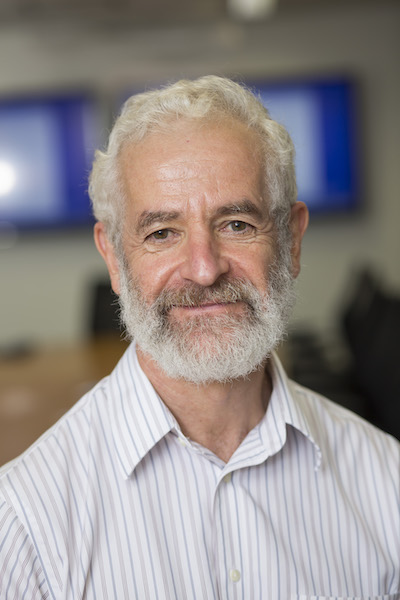
Professor Ian Wronski
Deputy Vice Chancellor, Tropical Health and Medicine, James Cook University
Professor Wronski is Deputy Vice Chancellor of the Division of Tropical Health and Medicine at James Cook University. His professional background is public health medicine, and he has 40 years’ experience as a clinician, educator, health service planner, and in policy development. He was the first Director of Health Services, Kimberley Aboriginal Medical Services Council and Medical Director of the Broome Regional Aboriginal Medical Service.
In the last 20 years he has led JCU’s development of research, education and training programs designed to develop regional research and ameliorate health workforce shortages in regional communities. He was a strong advocate for the foundation of the Australian Institute of Tropical Health and Medicine (AITHM) and for the establishment of the Tropical Australian Academic Health Centre. Ian has also provided intellectual leadership nationally and internationally in focusing attention on health issues of importance to rural, remote, regional, Indigenous and tropical populations. He is a member of the Asia Pacific Economic Cooperation (APEC) Life Sciences Innovation Forum Board. He has led a number of major reviews of state and Commonwealth health policy affecting rural, regional, and Indigenous Australians: recommendations from those reviews have been implemented in subsequent policy and practice.
In 2014 he was made an Officer of the Order of Australia for distinguished service to higher education, particularly in the areas of tropical and rural health and the health of Indigenous Australians. He was made a a Life Fellow of the Australian College of Rural and Remote Medicine, was awarded the Tropical Medicine Medal by the Australasian College of Tropical Medicine and was awarded the Life Sciences Queensland Industry Excellence Award. He is a Fellow of the Australian Institute of Company Directors.






